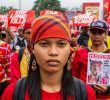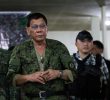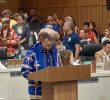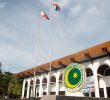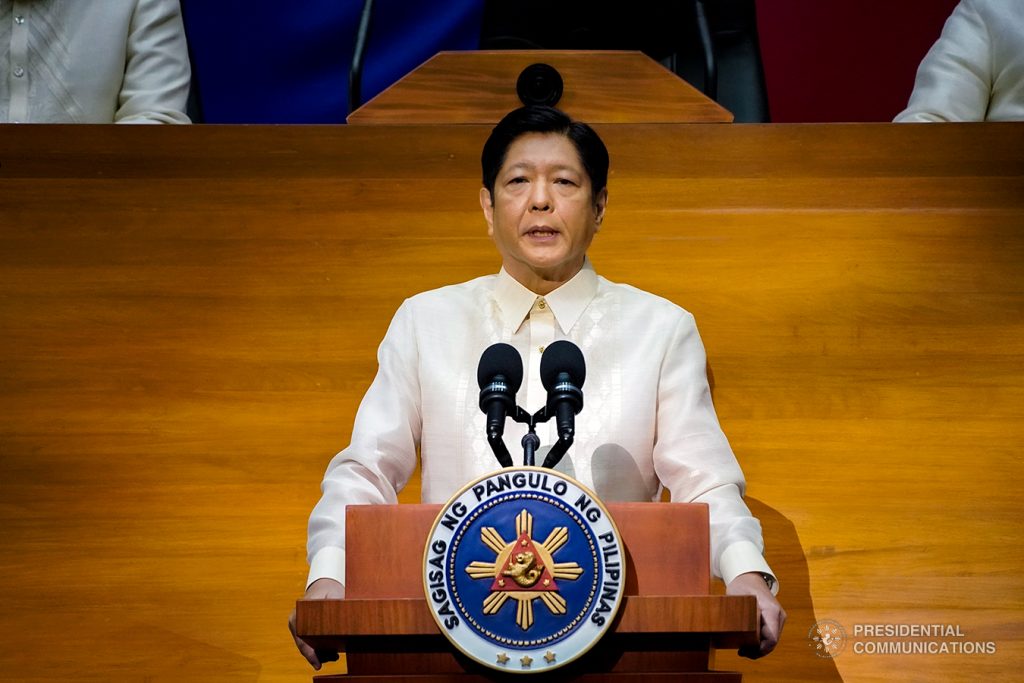
President Ferdinand “Bongbong” Marcos Jr. delivers his first State of the Nation Address (SONA) at the Batasang Pambansa in Quezon City on Monday, July 25, 2022. (Presidential Communications)
DAVAO CITY, Philippines — President Ferdinand Marcos Jr.’s first State of the Nation Address (SONA) was said to be comprehensive in its agenda, but lacks specifics on Mindanao issues.
Development worker Maria Victoria ‘Mags’ Maglana noted the irony that Marcos Jr.’s tandem, Vice President Sara Dutere, is from Mindanao, yet there was barely a mention of what his plans are for Mindanao.
“(B)ecause he ran with a candidate from Mindanao, one would have thought that Mindanao would figure strategically in the message of a President who says he will continue the initiatives of his predecessor who is from Mindanao,” she said on her Facebook post.
Even if Vice President Sara Duterte wore an indigenous attire in the SONA to represent the indigenous peoples, it “did not spur Marcos Jr. to say anything about indigenous peoples.”
Political Science lecturer Atty. Romeo Cabarde from Ateneo de Davao University said Marcos only mentioned Mindanao once and that is the plan for a railway system.
“I understand that he cannot speak of all issues but to skip Mindanao issues is a disservice to the landslide victory he has in the 25 of 27 provinces in Mindanao and 32 of its 33 cities. Seems that he is President for the North only,” Cabarde said on his Facebook account.
Both Cabarde and Maglana noted that there were no mentions of Mindanao issues such as the Bangsamoro peace process, indigenous peoples or the Lumad and the Marawi rehabilitation.
Maglana thought Marcos should have presented an agenda on the Bangsamoro Transition Authority, which is credited to his predecessor Rodrigo Duterte, and is now in a critical stage of an extension.
Marawi issue
The Moro Consensus Group was disappointed that there is no mention of the continuing rehabilitation of Marawi.
The group’s chair, Drieza Lininding, said government still has so much to do to address issues hounding the Marawi residents who were driven out of their homes, especially the return to their communities and the rebuilding of their lives.
“There’s still much work to be done to ensure the dignified and just return of the Marawi IDPs [internally displaced persons] after more than five years, including the implementation of the Marawi Siege Victims Act of 2022,” Lininding said.
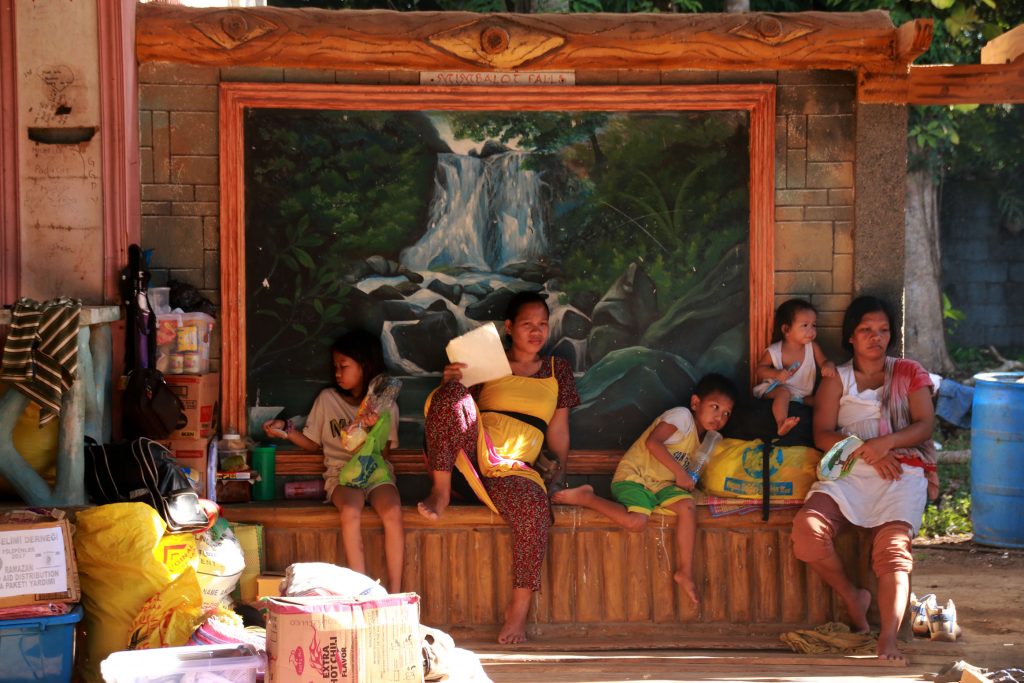
The Moro Consensus Group said the government still has so much to do to address issues hounding the Marawi residents who were driven out of their homes (davaotoday.com photo by Alex D. Lopez)
He hopes the Marcos government is not abandoning or making Marawi people least priority.
Omitted: land reform, labor issues
Marcos Jr.’s SONA outlined 19 legislative agenda covering agriculture, economy, social welfare, health, infrastructure, tourism, migrant workers, climate change, digitalization and foreign policy.
UP Cebu Professor Regletto Imbong said that in processing the president’s SONA, the top words are agrarian reform, development, and progress. But Marcos did not mention human rights, peace, corruption and contractualization.
Imbong finds the SONA big in words but lacking in detail.
“Marcos was silent on the more fundamental problem behind the landlessness in the Philippines. Because if we talk about landlessness in the Philippines, it involves a certain relations of production between the landlord and the landless peasants,” Imbong said.
IBON Executive Director Sonny Africa said Marcos Jr. did not mention plans to address inflation, rising joblessness and worsening poverty which are the most urgent concerns of most Filipinos today.
Africa noted that while Marcos Jr. failed to mention about continuing ayuda or subsidy for the people in this ongoing pandemic, “he was so enthusiastic about expanding infrastructure.”
While Marcos Jr. mentioned spending 5 to 6% of gross domestic product for infrastructure, Africa said there were no specifics on the budget for ayuda, health, education, micro/small and medium enterprises (MSME’s) and overseas contract workers.
Kilusang Magbubukid sa Pilipinas Chairperson and former Agrarian Reform Secretary Rafael Mariano said that the pronouncement to suspend land amortization payments and condone existing amortization balance of agrarian reform beneficiaries through legislation is welcome but long overdue.
But he said Marcos did not present a new land reform program that will ensure the continuation of land acquisition to expand the existing coverage of agricultural lands for distribution.
“He did not address the long-standing demand of farmers for free land distribution and genuine agrarian reform as the realization of social justice and genuine emancipation of farmers from the bondage of evil,” Mariano said.
Mariano said Marcos focused only on distributing government-owned lands under Duterte’s EO 75 but made no mention on private agricultural lands such as haciendas and landholding under the control of private families and corporations.
Kilusang Mayo Uno Secretary General Jerome Adonis said the future is bleak for workers as Marcos Jr. showed no plans to end contractualization and unemployment, and to implement salary increase. Instead, they see more neoliberal policies being laid down.
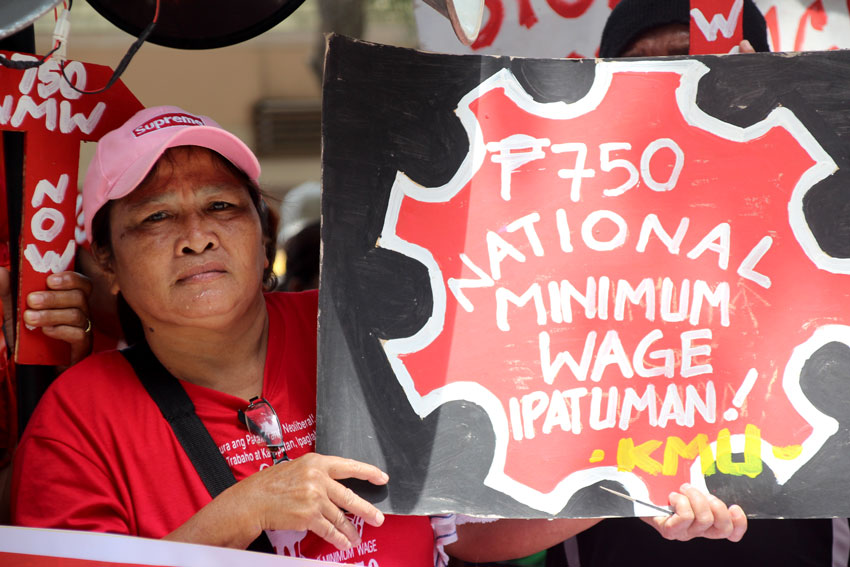
LIVING WAGE. Workers led by Kilusang Mayo Uno join the protest rally to demand for the end of contractualization or labor-only contracting and to set the national minimum wage at P750 in the country. (davaotoday.com file photo)
“Lugmok na nga sa hirap ang mamamayan, pambungad pa nya agad ang planong tax reform. Dagdag pasakit lang ito sa mamamayan. Ang pamilya Marcos nga ayaw magbayad ng buwis.Mabuti pang tanggalin na ang mga pahirap na buwis na yan! Tanggalin ang excise tax at EVAT sa langis at pangunahing bilihin,” Adonis added. (The people are plunged into poverty, but his speech opened with the tax reform plan. It would be an additional burden to the people. The Marcoses do not even pay taxes. Remove the taxes that scourge the people. Scrap the excise tax and EVAT to oil and basic commodities.)
Award-winning writer and Martial Law survivor Agustin ‘Don’ Pagusara mockingly praised the president’s speech writer.
“Bravo to the speech writer of BBM! But if it was really President Bongbong’s own, it was an excellent piece of populist oratory,” he said.
He added that Marcos Jr.’s SONA is “all for a show of tact for compassionate concern, pretentious for the people’s issues and a continuation of the lack-luster course of governance that assumes the Neoliberal norm adopted by the Republic of the Philippines as its ideological foundation.”
Marcos targets to turn the country into an upper middle-income country by 2024 and reduce poverty incidence to single digit by 2028. But Maglana said the president’s plan did not show “any bold departure from the Philippines of the past six years.”
Maglana added, “…in failing to articulate how our political realities and social structures will be positively and progressively transformed, PMarcos, Jr., might as well have said: ‘The state of the status quo is sound.'” –with reports from Jigger Jerusalem (davaotoday.com)

